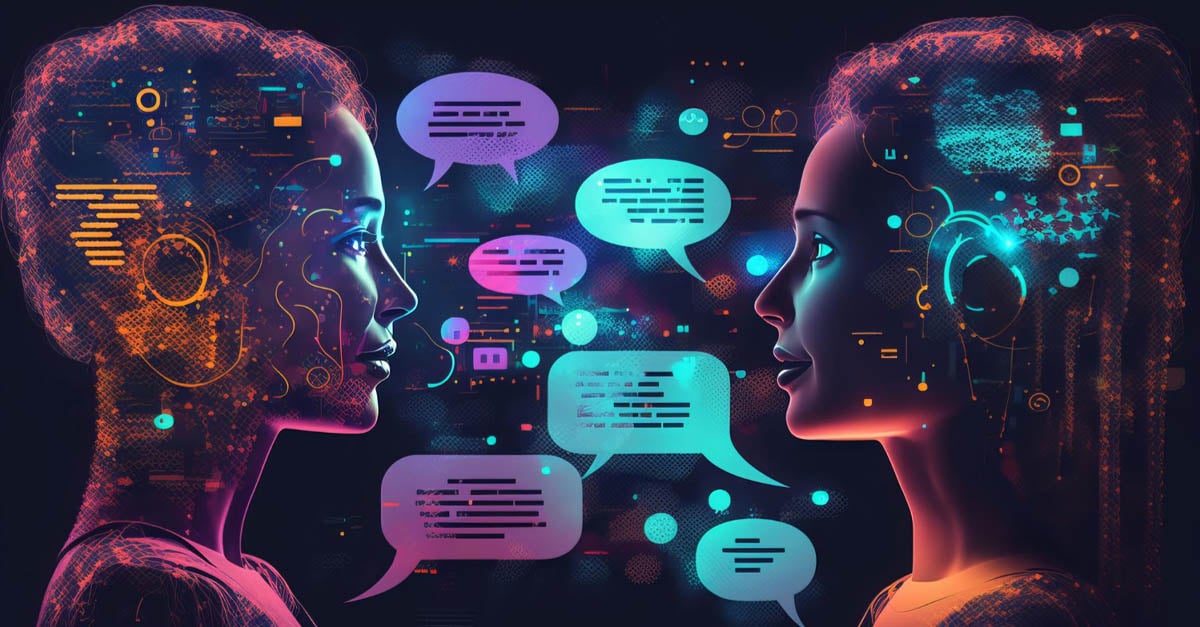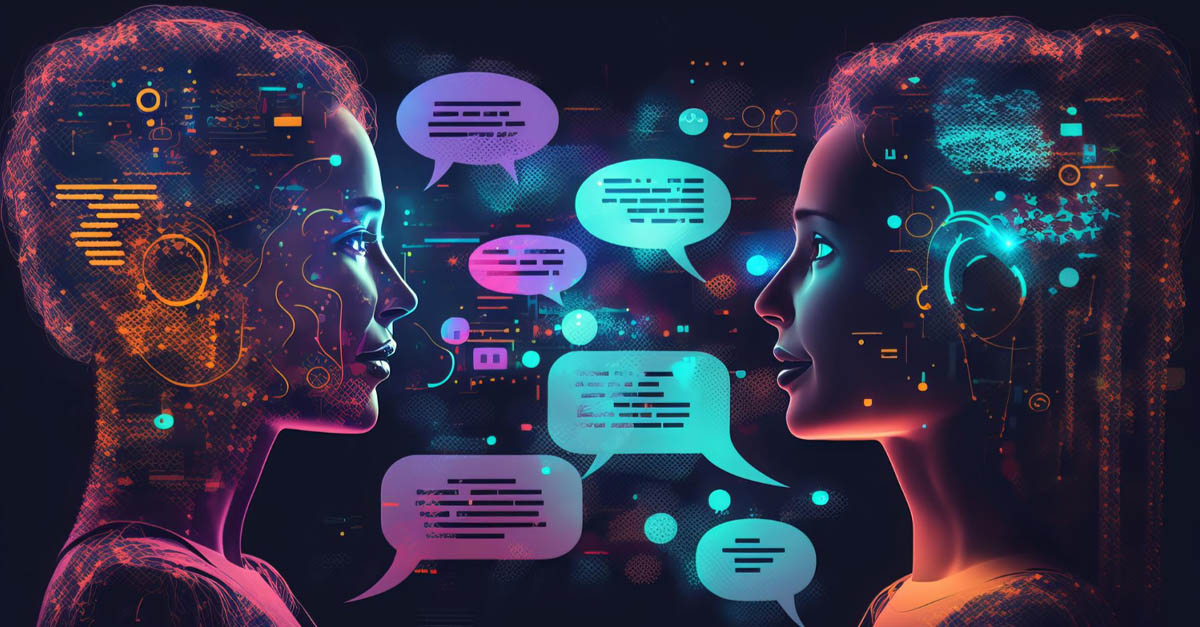Threats and opportunities of generative AI for enterprise communities

In my last post, I explored a list of questions that enterprise community professionals should be asking around generative AI tech. I intentionally left it open-ended to elicit provocation and consideration.
Here, I want to focus on the potential impacts that GPT (generative pre-trained transformer) technologies will have on the online community space.
It might be easy to dismiss GPT technology as trendy or just the newest and shiniest penny that glimmers in Silicon Valley's eye. After all, a year ago, the two biggest conversations across the broader technology landscape were the Metaverse and NFTs (non-fungible tokens), and the buzz around them has already tapered off considerably. Is generative artificial intelligence going to fall into the same chasm?
I'm in agreement with many of the technology luminaries that GPT is shifting the technology landscape in such a tectonic fashion, that we will see it as the most important advancement since the internet itself. There is not going to be an industry left untouched by the wake of generative AI in the next 18 months.
I see GPT tech as both friend and foe to communities. Let's explore the latter first and end on a more “protopian” perspective of the potential.
Main threats that generative AI tech poses to the enterprise community space
(1) The most devastating threat of all: Will the use of GPT tech make communities obsolete altogether? The same question is being asked of search engines at large. Is Google even necessary in the age of advanced nonhuman assistants? Why search for the answer if you can just get the answer? We know that anywhere from 50% to 80% of community traffic comes by way of search engines, namely Google. In the same way that GPT technology is a threat to the search engine, so it is for online communities.
There is no question that we will see different patterns emerge in how communities are used and how society engages with them. Communities will need to evolve and even embrace GPT technology to adjust to the shifting landscape. If the community space does not make dramatic efforts to include GPT in the conversation, it is entirely possible that it will become so marginalized to a tiny niche category and corner of the internet, that it becomes unnecessary at best. That's a bleak perspective, but I believe a very real threat.
2) Another threat for the community space is this question: How much of the content on an online community will be generated by AI versus by humans? This area has many complexities and nuances, but suffice it to say that we often won't know if we are interacting with AI or with a real human. In the case of finding an answer to a technical question, perhaps it won't matter. But in the case of genuine human engagement with differing perspectives, viewpoints, and purpose, I think we can agree that we will want human recognition and advancement throughout community participation.
How much of the content on an online community will be generated by AI versus by humans?
What are the boundaries and limitations in this regard? There are going to be many more questions asked and pondered as it relates to enterprise community, but I see the above two points as the most substantial threats that need to be reckoned with.
Opportunities for online communities presented by generative AI
Shifting over to the opportunities that GPT technologies will most certainly present in this space, I believe there are many reasons to remain optimistic. Let's explore a few.
1) Automating community moderation and removing bad actors: This is an exciting development that can help to eliminate the more nefarious aspects of online communities today. Any large-scale enterprise community has a governance model whereby moderation of people and content is a tedious and labor-intensive task. This is both error-prone and costly. What if we could delegate the bulk of this task to our nonhuman counterparts? Human moderation in some form will likely always exist, but if advanced artificial intelligence can do much of the heavy lifting before it reaches human eyes, this can help human engagement and trust when participating with an online community. It also allows for community budgets to be pointed towards innovation and growth rather than a law enforcement model.
What if we could delegate parts of community moderation to our nonhuman counterparts?
2) The ultimate concierge community experience: Remember Microsoft’s animated paper clip character included with Windows? This was intended to be a helper of sorts if we ever had questions about how to use the operating system or applications we were working with. If GPT technologies assisted us in finding the right content, or better yet, producing the best content possible and maybe even a combination of both, just think of how much that would enrich the overall community experience! Microsoft is already attempting this model with their Co-Pilot feature as a part of the suite of applications in Office 365. I believe that online community platforms can adopt a similar model and embrace nonhuman guided navigation and nonhuman content creation. This could evolve the community space beyond recognition in the best possible way.
3) True personalization: Another benefit that GPT technology can provide to the online community experience is advanced personalization. There is limitless potential here. For as long as I have been in the community space (going on 14 years), personalization has been highly sought after yet elusive. There are varying degrees of successful implementation, but it takes a lot of customization and effort with hefty resources and specific skill sets to make personalization effective. Most communities are not even attempting personalized experiences because of the complexity, expense and daunting nature of the task. GPT technologies have the potential to provide a layer of personalization that has never been realized before in an online community experience. Making professional and personal introductions to human subject matter experts and providing the best possible set of content without the need to search for it are just a couple of examples of what will be possible in the very near future.
There will be many more benefits that GPT technology will extend to online communities and I am all for it! It's an exciting time to be in the enterprise community space.
We at iTalent Digital have already incorporated AI into some of our community integrations and functionalities, and are actively exploring ways to further enhance the community experience by integrating GPT models and frameworks. Visit our dedicated web page for more information about our award-winning enterprise community practice.
You may also like:
How generative AI will impact enterprise community user engagement
How AI-enabled enterprise search improves the customer experience
Make community management more efficient and scalable with Khoros ACM



